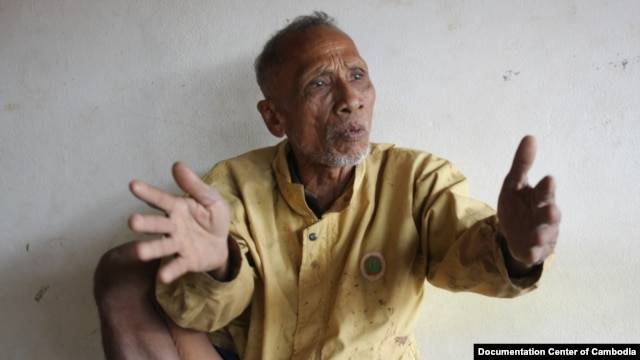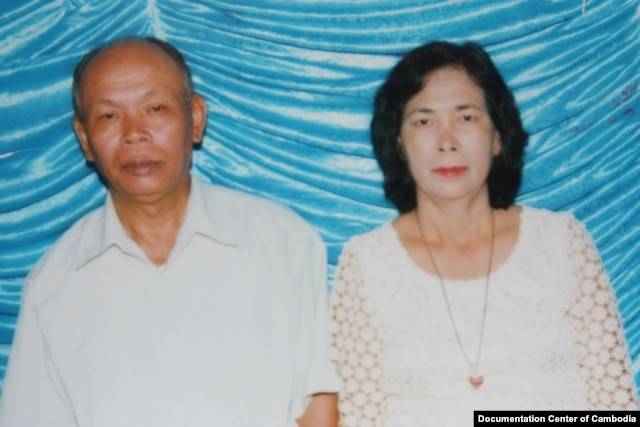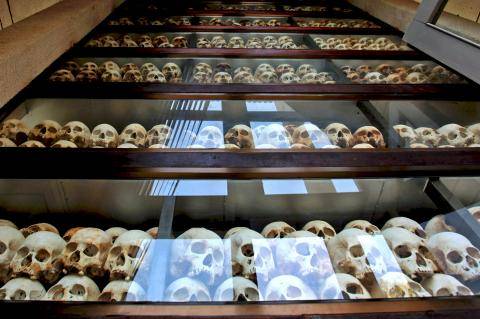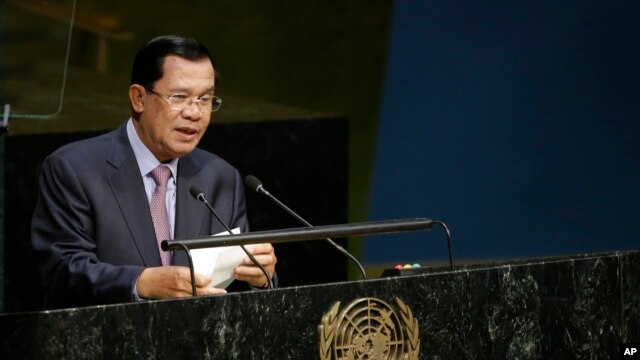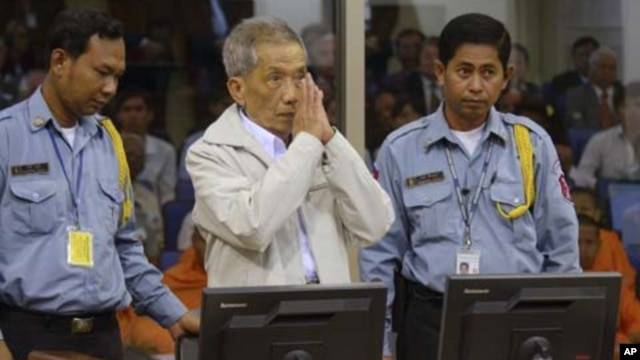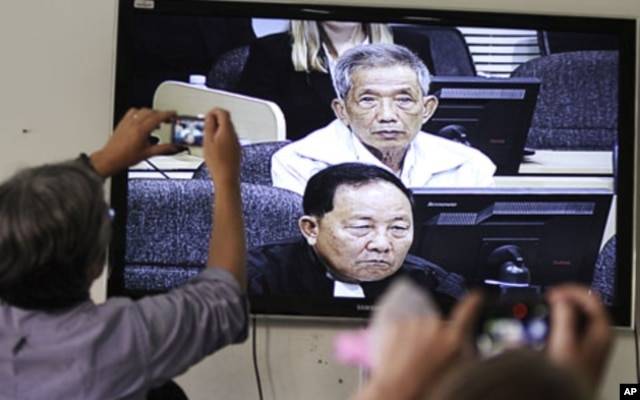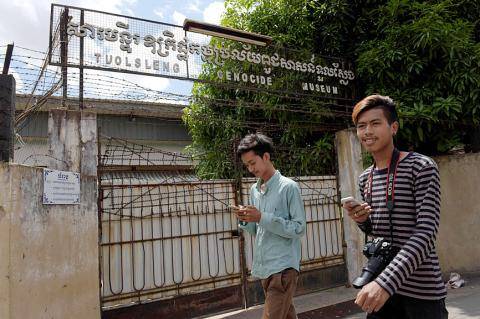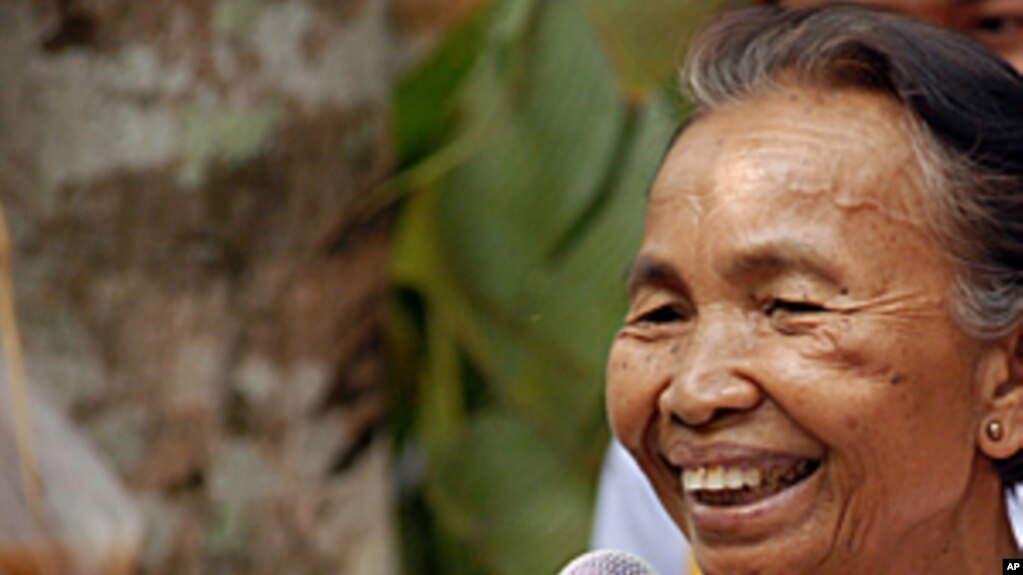Justice catches up with Pol Pot's Khmer Rouge...
Cambodia opens first genocide case
17 October 2014 ~ A UN-backed Cambodian tribunal began hearing the first genocide case against the country's brutal 1970s Khmer Rouge regime.
Cambodia opens first genocide case
17 October 2014 ~ A UN-backed Cambodian tribunal began hearing the first genocide case against the country's brutal 1970s Khmer Rouge regime.
It was another step toward justice for an estimated 1.7 million people who died from starvation, disease and execution. Khieu Samphan, the regime's head of state, and Nuon Chea, right-hand man to the communist group's late leader, Pol Pot, received life sentences in August after being found guilty of charges including crimes against humanity, related mostly to the group's forced movement of millions to the countryside when it took power in 1975. They have appealed against their convictions.
The UN-backed tribunal split the cases into two trials for fear that Khieu Samphan, 83, and Nuon Chea, 88, could die before any proceedings against them could be completed. The second trial will also include additional charges of crimes against humanity, addressing for the first time accusations of rape and forced marriages. The prosecutors made short opening statements today. The first witness is expected to testify on Monday. According to the genocide charges, Pol Pot and other senior leaders intended to wipe out members of the country's Muslim Cham and Vietnamese ethnic minorities.

Victims of the Khmer Rouge regime at the entrance of the war crimes tribunal in Phnom Penh
Estimates of the number of Chams killed range from 90,000 to 500,000. Hundreds of thousands of ethnic Vietnamese were forced into neighbouring Vietnam, and virtually all of those remaining were executed. Vann Math, head of the Cambodia Islamic Association, said the Khmer Rouge fiercely persecuted the Cham, destroying mosques and killing people. He said many Chams are now avidly following the tribunal's proceedings.
Lyma Nguyen, a lawyer representing ethnic Vietnamese victims, said outside the hearing that the trial represents not only a rare chance to shed light on the genocide, but also on the lingering harm the mayhem has caused to survivors. Those forced to flee retained no documentation proving their Cambodian origins, so when they returned they were plunged into statelessness, and remain targets of widespread discrimination and political scapegoats. After years of legal and political wrangling, the Khmer Rouge tribunal was established in 2006, but has been plagued by corruption, mismanagement, and financial woes.
MORE


